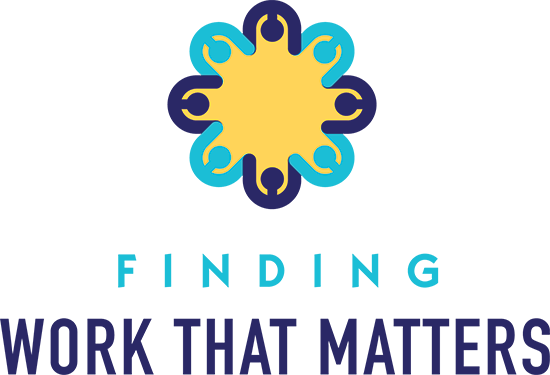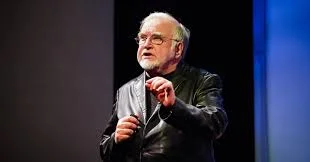What are you going to do when you grow up?
/The old man reached for my bag as soon as it was placed on the airport curbside. I was startled. And then he looked at me and smiled. He was wearing a uniform. He pulled my suitcase to the trolley. He handed a baggage tag to me and smiled.
The man looked old enough to be retired. He moved slow. He moved purposefully. I wrote down my contact information on the tag, secured it on the suitcase and handed him the pen. He smiled again.
And I knew this was a man who enjoyed his work.
Often when people think about work that would engage them, they can’t imagine being a luggage attendant at Tampa Bay airport.
Perhaps the man hadn’t considered this to be his dream job.
Most people say they found their lifework via a circuitous path that feels more like a stumble than a choice.
But is that really true?
What I know about life in general is what may look like one choice is actually a series of choices. Small daily choices. That add up.
What accompanies those choices is what I like to think of as the “curious dog phenomenon.”
The dog doesn’t really understand what is going on so it tilts its head, one direction and sometimes the other. The dog is fully engaged, looking like it is just trying to figure it out.
A very curious look.
In hindsight, I see that the curious dog phenomenon was behind the choices I made.
When I was working in a job that was an awkward fit, I found myself looking across the hall at the next department, much like a curious dog. What was it that they were doing? I started asking questions. Within a couple of months, I was working in the education department.
Though I was not thinking of my dream job at the time, what I know now is I was connecting some dots.
By looking back at my work, I can see that there were not only clues about what fits for me but I was gravitating towards what intrigued me.
On an internal level I was getting clearer and clearer about my dream job.
And this is true for you as well. If you look back at your work or volunteer or life experience, think of times when you acted like a curious dog.
This will give you some good clues about work that fits for you. Below are some questions to help the process:
1. What did you love to do as a child? What were some activities that you did again and again?
Carl Jung, the Swiss psychologist, loved to dig in the mud. Later in his life, he reflected that what he ended up doing for his work was connected to the mud experiences – he would delve deeply into the unconscious and bring it to light.
2. What comes naturally to you?
Often people dismiss what they do well because they think that anybody can do it. Think of those activities that you do with ease and when you experience “flow experience,” a term from Mihaly Csikszentmihalyi. Flow is a heightened focus and immersion into activities. In this video, Csikszentmihalyi outlines the flow experience:
Another way to look at what comes naturally to you is to do the Myers Briggs Type Indicator (MBTI), an assessment that provides cool information about your psychological preferences. For more information about MBTI, check it out here.
3. What would you do if money was no object?
One of the intriguing characteristics of millionaires when they talk about their beginnings is that money was not the primary factor in what they were doing. Money clouds our perspective. In asking the question of money not being an object, the answer may not provide precisely what you want to do, but you can get some good clues.
Let’s say you want to be philanthropist, spending your money and time on important causes. The clue in that might be that you would like to help ease other people’s suffering – this is what you can bring to many jobs.
4. Who inspires you?
This could be a celebrity, friend, family member or whoever has touched your life in a way that makes you think bigger. What specifically about that person inspires you? What qualities or contributions that they make may be connected to what you want in your work life?
I have thought frequently about the brief encounter with the old man at the airport over the years. What I remember is that in an instant, I saw someone who was totally engaged.
He reminded me that people doing work that enlivens them happens everywhere. Even in a whirl of an airport. I know the litmus test of seeing someone truly engaged in their work – I want to do it too. I am inspired.
Meeting that man taught me that finding work that matters is a personal matter and the most satisfying work isn’t about being big and grand. And perhaps grand is what you make it.
Now it's your turn.
Who has influenced you? How has it changed your life? You are welcome to add your thoughts in the comments below – I would love to hear from you!!





